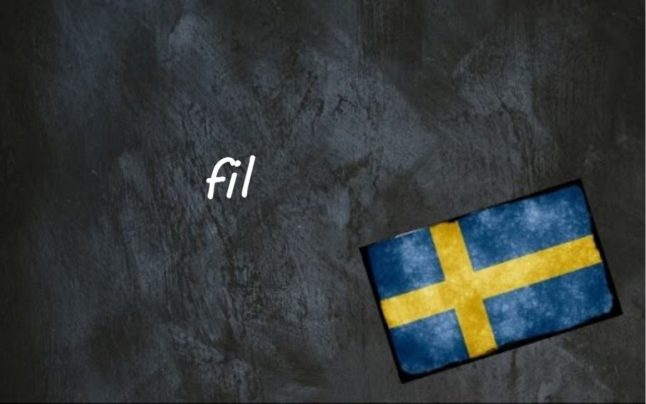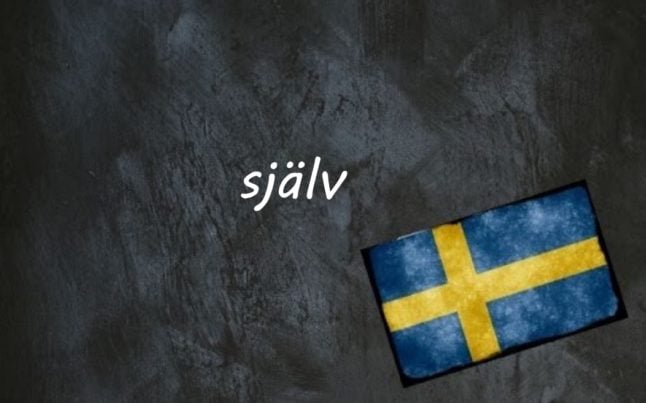Many newcomers to Sweden learn the word fil soon after arriving in the country, after accidentally buying it in the supermarket (it’s sold in milk cartons in the dairy section) and adding it to coffee.
Unfortunately, fil is a thick soured milk product similar in consistency to yoghurt which, as you can probably imagine, isn’t a particularly nice addition to your morning brew.
Fil in this sense of the word is short for filmjölk, and is related to the Icelandic word þél (also meaning fermented milk), from the Old Norse word þéttr meaning dense or tight (this is also the root of the Swedish word tät which has the same meaning).
It’s a popular breakfast product in the Nordic countries with a characteristic sour taste, and is eaten topped with muesli or cereal and maybe a bit of jam or fruit. Different types of fil are available, like lättfil (light fil) with a lower fat content, Onaka fil which claims to use a strain of probiotic bacteria popular in Japan, and fil flavoured with berries or vanilla. It can be used in baking as a substitute for cultured buttermilk.
The word fil can also be used to describe a lane or row of some sort of moving object, like a row of ants moving in procession or a lane of traffic. Things can also be i fil or “in a row”, like rooms in a row along a corridor, for example, similar to the English phrase for walking one by one in a row: “single file”.
This meaning of the word fil can be traced back to the Latin word for thread, filum, via French filer meaning to thread or spin a strand or something. In modern French, a file still means a line of objects placed in a row, while in Belgium, file refers to a traffic jam.
The two meanings of the Swedish word gräddfil demonstrate these different uses of the word fil.
The first and most common use of the word gräddfil is to refer to sour cream (grädd here comes from the Swedish word for cream, grädde). Another version you might come across is gräddfil in the sense of some kind of priority lane or special treatment offered to a specific group or individual, often but not always about jumping healthcare queues.
That’s not even all of the meaning of the word fil. It’s also the Swedish word for a computer file (most likely an English loanword) and the word for a file, a tool used to remove sharp edges on some sort of material, often wood or metal.
Example sentences:
Förra gången min syster kom till Sverige köpte hon fil av misstag och hällde det i kaffet.
Last time my sister came to Sweden she bought fil by accident and poured it in her coffee.
“Inga gräddfiler i vården! Alla ska få vård på lika villkor.”
“No priority lanes for healthcare! Everyone should be offered care on equal terms.”
“Det går inte att ladda upp filen!” “Har du testat att spara den i ett annan filformat?”
I can’t upload the file! Have you tried saving it in a different file format?
Don’t miss any of our Swedish words and expressions of the day by downloading our new app (available on Apple and Android) and then selecting the Swedish Word of the Day in your Notification options via the User button.



 Please whitelist us to continue reading.
Please whitelist us to continue reading.
Member comments